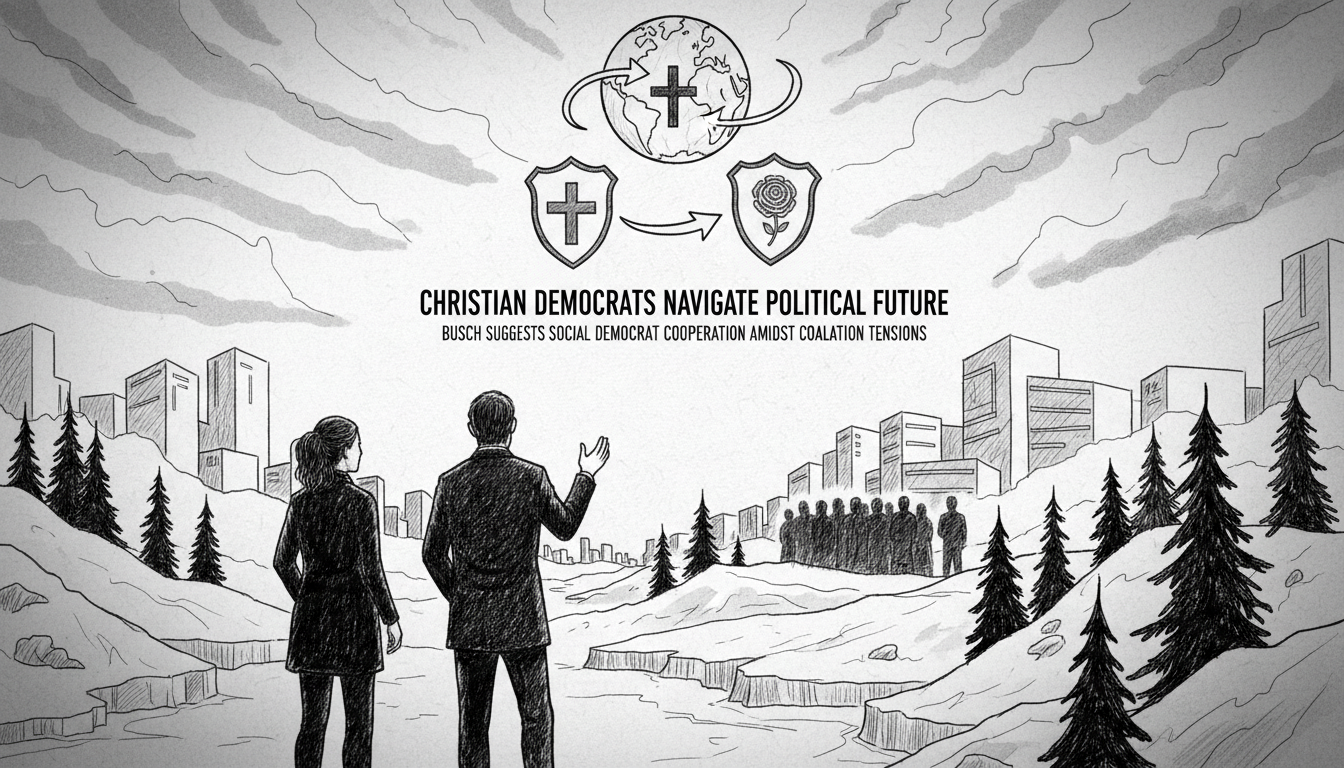Christian Democrat leader Ebba Busch created political waves this week when she opened the door to potential cooperation with the Social Democrats after the next election. Her comments triggered strong reactions from other government coalition parties. The political temperature rose during Wednesday's EU debate in parliament between Prime Minister Ulf Kristersson and Busch.
At the Christian Democrats' national conference in Linköping this weekend, Busch made clear her party aims to continue working with the Tidö Agreement parties. In her conference speech, she criticized the red-green political opposition, claiming they lack what she called a coherent policy framework.
Several Christian Democrat representatives expressed positive views about the party distinguishing itself from other coalition members. They emphasized their commitment to forming governments with center-right parties. Roland Utbult, a member of parliament, described the current coalition dynamics as similar to family relations. He noted that occasional friction occurs but marking political positions remains essential.
Nike Örbrink, the Christian Democrat group leader in Stockholm City, welcomed the party's positioning. She stated that Sweden needs broad consensus on crucial long-term issues. Örbrink believes her party can take leadership in building this wide support.
However, parliament member Camilla Brodin expressed skepticism about any potential government cooperation with the Social Democrats. She suggested such a scenario would require the entire Social Democratic party to adopt Christian Democrat positions.
The political landscape in Sweden has grown increasingly complex since the 2022 election. The current minority government relies on support from the Sweden Democrats through the Tidö Agreement. This arrangement has created ongoing tensions between coalition partners. The Christian Democrats appear to be positioning themselves as potential bridge-builders in future political negotiations.
Sweden's proportional representation system often requires coalition governments and cross-party cooperation. No single party has won an outright majority since 1968. This political reality makes statements about future cooperation particularly significant. Parties must balance ideological purity with practical governing requirements.
International observers should note that Swedish coalition politics differ markedly from two-party systems. Multiple parties must negotiate compromises to form stable governments. The Christian Democrats' recent statements reflect this ongoing balancing act between principle and pragmatism.
What happens next in Swedish politics remains uncertain. The Christian Democrats' positioning could signal broader realignments within the center-right bloc. Their willingness to discuss cooperation across traditional political divides may influence how other parties approach future coalition building. The coming months will reveal whether these comments represent tactical positioning or genuine strategic shifts.

